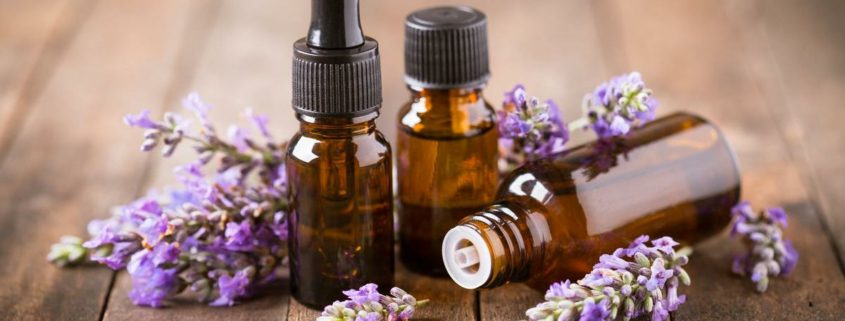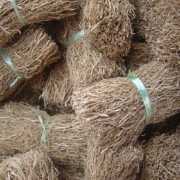Essential Oils for Flu
Getting the flu or its symptoms every so often isn’t uncommon, particularly during seasonal changes. Flu viruses are continuously evolving, making it harder to treat them at home, and sometimes could be life-threatening. The use of essential oils for flu and its associated symptoms has gained increasing popularity over the past few years. Though they alone cannot cure the condition, nevertheless obviously, can help you feel better in many different ways.
In this article, we’ll be exploring some of the most common benefits of using essential oils for the flu and associated symptoms along with important precautions and possible risks. But before we get into how essential oils can help with flu infections, first, we’ll need to learn the basics of flu a little bit more. So, let’s get started.
Table of contents
-
What is flu and what are the causes and symptoms involved?
-
What are essential oils?
-
Can essential oils help with the flu?
-
Which essential oils are best for influenza or flu?
-
Best essential oils for flu symptoms
-
How to use essential oils for flu
-
Precautions and possible risks
-
Frequently asked questions (FAQs)
What is flu and what are the causes and symptoms involved?
The flu, also known as influenza, is an infectious disease of the respiratory system that usually involves the throat, nose, and lungs. In most cases, it gets better on its own by simply increasing fluid intake and rest and using some home remedies such as essential oils. But sometimes, its complications can be more severe and even life-threatening that need immediate medical attention.
The flu is caused by influenza viruses commonly called flu viruses. They may affect different people differently and show up a number of symptoms, including, but aren’t limited to:
- Fever
- Runny nose
- Chills
- Cough
- Congestion
- Headaches
- Pains and aches in the body, especially muscles
- Fatigue
- Eye pain
- Sore throat
- Sneezing
- Dizziness
- Nausea or vomiting
What are essential oils?
Essential oils refer to the concentrated extracts derived from plants, meaning they are the “essence of plants”. These oils are derived through either pressing or steaming various parts of the plants such as flowers, leaves, fruits, roots, and barks to collect the concentrated highly potent saps of the plants.
These saps contain the plant’s natural flavor, scent, and various biologically active compounds. Depending on the sourcing plant, essential oils and the active compounds they contain may have significant medicinal properties such as antiviral, antibacterial, antifungal, anti-inflammatory, and more.
Can essential oils help with the flu?
Since essential oils possess several medicinal properties, a number of essential oils have been found to have the potential to help with the flu and its associated symptoms. Though there is limited evidence, findings so far are very promising.
Different essential oils can help with different flu symptoms. It all depends on the active compounds and medicinal properties of the essential oils to determine how a specific essential oil can work on the body and help you feel better.
Which essential oils are best for influenza or flu?
There is a wide range of essential oils that can be used as home remedies for flu and cold symptoms. Some essential oils, such as eucalyptus essential oil, for instance, have remarkable antiviral effects that can help you kill flu viruses and speed up recovery, while others possess medicinal qualities that may help you with alleviating various symptoms such as congestion and pain.
Some of the most common essential oils used to treat flu symptoms are as follows:
Best essential oils for flu symptoms
Eucalyptus
Eucalyptus essential oil has remarkable anti-inflammatory and antimicrobial, especially antiviral activities. It helps reduce chest congestion and relieve pain and soreness. It is also helpful in sinus relief.
Here you can see our pure and natural Eucalyptus
Peppermint
Peppermint essential oil has been found to have significant anti-allergic and anti-cough properties. It helps relieve cough, congestion, sore throat, and various symptoms of allergies such as eye irritation and pain.
Here you can see our pure and natural Peppermint
Cinnamon
The cinnamon essential oil has tremendous antioxidant, immuno-modulating, antiviral, and antifungal properties. It can help fight against viral particles and reduce infections.
Here you can see our pure and natural Cinnamon
Bergamot
Bergamot essential oil has been found to have incredible antiviral properties. It is significantly effective in inhibiting the growth of the influenza virus.
Here you can see our pure and natural Bergamot
Lemon
Lemon has long been known for its unparalleled antibacterial, antiviral, and anti-inflammatory actions. It can hugely help in reducing swelling in glands and body aches. It is also beneficial for alleviating cough and congestion as well.
Here you can see our pure and natural Lemon
How to use essential oils for flu
Essential oils can be used in many different ways as home remedies against the flu and its associated symptoms, including:
- Massage
- Inhalation
- Compresses
- Diffusion
- Bathing
These methods are often used in combinations. It depends on the specific signs and symptoms to determine what method or combination of uses would be the best.
Precautions and possible risks
Though essential oils are generally safe and well-tolerable for most people, some people, especially those who are sensitive to specific plants may experience irritations of mucus membranes or skin. Do not ingest any essential oil unless or until it is advised by a licensed healthcare provider.
Besides, some essential oils may interact with other herbs, supplements, and medications. Therefore, it’s always best to consult with a qualified aromatherapist or natural medicine provider to determine the safety profile and best method of use, especially if you’re pregnant or on medications for any underlying health condition.
Frequently asked questions (FAQs)
Which essential oil is good for winter?
Essential oils with warming effects are often preferred for winter. They may include:
- Orange
- Ginger
- Cinnamon
- Peppermint
- Sandalwood
- Clove
- Black pepper
- Rosemary
Which essential oils are good for congestion and cough?
Essential oils with medicinal properties to help lower inflammation, fight bacteria and soothe the throat are highly beneficial for congestion and cough. A number of essential oils have been found to have these healing qualities, such as:
- Geranium
- Eucalyptus
- Peppermint
- Rosemary
- Thyme
- Oregano
- Frankincense
- Tea tree
- Cinnamon
- Cypress
- Bergamot
- Nutmeg
Which essential oils are good for flu aches and pains
Some of the best essential oils for flu aches and pains include:
- Lavender
- Roman chamomile
- Eucalyptus
- Lemon
- Peppermint
Where to apply essential oils for flu?
The application of essential oils for flu depends on specific symptoms and personal health status. In general, they are added to carrier oils such as olive, jojoba (Simmondsia Chinensis), or coconut oil, and the mixture is rubbed onto the throat and chest. They can also be inhaled by adding a few drops to a handkerchief or cotton ball.
Disclaimer
This content is written purely for providing general information to our readers only and is never intended to be substituted as a professional medical guideline including cure, diagnosis, advice, and treatment. Always consult with a professional aromatherapist or naturopathic doctor before using any part of this content.
Abdul Rouf Wani, Kanchan Yadav, Aadil Khursheed, Manzoor Ahmad Rather
An updated and comprehensive review of the antiviral potential of essential oils and their chemical constituents with special focus on their mechanism of action against various influenza and coronaviruses,
Microbial Pathogenesis, Volume 152, 2021, 104620, ISSN 0882-4010,
https://doi.org/10.1016/j.micpath.2020.104620.
(https://www.sciencedirect.com/science/article/pii/S0882401020309864)
Abstract:
Essential oils and their chemical constituents have been reported with well documented antimicrobial effects against a range of bacterial, fungal and viral pathogens. By definition, essential oils are a complex mixture of volatile organic compounds which are synthesized naturally in different parts of the plant as part of plants secondary metabolism.
The chemical composition of the essential oils is dominated by the presence of a range of compounds including phenolics, terpenoids, aldehydes, ketones, ethers, epoxides and many others inferring that essential oils must be effective against a wide range of pathogens.
This review article mainly focuses on the antiviral potential of essential oils and their chemical constituents especially against influenza and coronaviruses.
Essential oils have been screened against several pathogenic viruses, including influenza and other respiratory viral infections. The essential oils of cinnamon, bergamot, lemongrass, thyme, lavender have been reported to exert potent antiviral effects against influenza type A virus. The essential oil of Citrus reshni leaves has been shown to be effective against H5N1 virus.
The essential oil of Lippia species at a concentration of 11.1 μg/mL has been shown to induce 100% inhibition of yellow fever virus in Vero cells. Essential oils and oleoresins have been shown through in vitro and in vivo experiments to induce antiviral effects against Coronavirus infectious bronchitis virus.
A study reported 221 phytochemical compounds and essential oils to be effective against severe acute respiratory syndrome associated coronavirus (SARS-CoV) using a cell-based assay measuring SARS-CoV-induced cytopathogenic effect on Vero E6 cells.
The main mechanism of antiviral effects of essential oils has been found to cause capsid disintegration and viral expansion which prevents the virus to infect host cells by adsorption via the capsid.
Essential oils also inhibit hemagglutinin (an important membrane protein of various viruses) of certain viruses; this membrane protein allows the virus to enter the host cell. Many essential oils and their components could inhibit the late stages of viral life cycle by targeting the redox signalling pathway.
Essential oils of Thymus vulgaris, cymbopogon citratus and Rosmarinus officinalis have been found to destabilize the Tat/TAR-RNA complex of HIV-1 virus, this complex being essential for HIV-1 replication. Being lipophilic in nature, essential oils can penetrate viral membranes easily leading to membrane disintegration.
The current comprehensive review will facilitate researchers to find chemical entities from plant sources as possible inhibitory agents against various viruses.
SEE ALSO:
























I really appreciated this article: it offers a clear and balanced overview of how essential oils may support flu-related discomfort. The practical suggestions and safety reminders make it thoughtful and helpful. Well done!